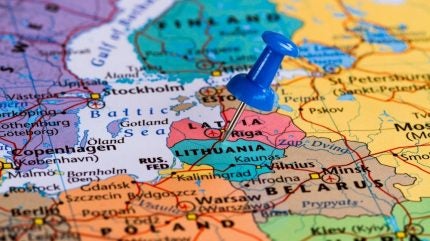
The European Commission (EC) has approved Lithuania’s new scheme which focuses on electricity production from renewable energy sources.
The scheme will help the country reach its national target share of renewable energy sources in gross final energy consumption of 38% by 2025. The scheme will run until 1 July 2025, or until the 38% target is reached.
Lithuania renewable funding
The scheme has an overall budget of €385 million ($433.28 million) and will be open to all renewable energy installations.
The projects to benefit from the scheme will receive support in the form of a premium, driven through a competitive bidding process. The final premium will not be set at a level greater than the difference between the electricity market price (reference price) prevalent in Lithuania and the average production costs of the most cost-efficient renewable energy technology in the country (maximum price). Currently, the Lithuanian authorities have defined onshore wind as the most cost-efficient renewable energy technology.
The reference and the maximum price will be set by the Lithuanian national energy regulator for each auction. The projects selected under the auction will be awarded a 12-year feed-in premium tariff. The developers of the selected projects will have to cover grid connection costs. Developers, whose plants exceed a capacity of 500 kW, will have to assume the grid balancing responsibility.
Prior to the introduction of the scheme, the country’s incentive system was based on a long-term fixed approach, where funding was granted for 12 years from the day of issuance of the production license. This subsidy scheme witnessed the competition between individual types of energy production and the capping of incentives under the quota regime. These quotas were allocated at technology-specific state auctions. But these auctions were exhausted about four years ago and there has not yet been a fresh round of auctions.
Under the new scheme, technology is neutral which means the contract is awarded to the project offering the lowest price irrespective of the type of renewable energy involved. The projects will receive support in the form of a premium driven through a competitive bidding process. The bidding process will be held for certain energy volumes to be produced, which is independent of the type of renewable energy technology used.
The support will be driven by reference price, market price and the maximum price. The reference price is calculated according to the procedure of the National Commission for Energy Control and Prices (NCECP) in due consideration of the price at the Nord Pool power exchange. The reference price is independent of the type of technology. The reference price will be applied throughout the funding period until the cost of the plant is fully amortised but no longer than 12 years. The market price is calculated based on the average hourly electricity price of the region in Lithuania at the Nord Pool power exchange. The maximum price is calculated according to the procedure of the NCECP. The average production cost of the most efficient renewable energy technology is considered to establish the maximum price.
The calculation for the support in the form of the premium is:
• If the market price is greater than the reference price then the maximum price minus market price is paid as the premium
• If the market price is less than the reference price then the total market premium is paid
• If the market price is greater than the maximum price then no market premium is paid
The EC assessed the scheme under the EU state aid rules and found that the aid has an incentive effect as it does not cover the entire production costs. It covers only the difference between the production costs and the market price of electricity, which is how the Commission approved the scheme.
The first round of auction will be held in September 2019 with the procurement of around 300 GWh of electricity generation. The scheme will help Lithuania to contribute to a low carbon economy along with an environmentally friendly sustainable energy supplier.
Related report:
European Commission supports renewable electricity scheme in Lithuania


